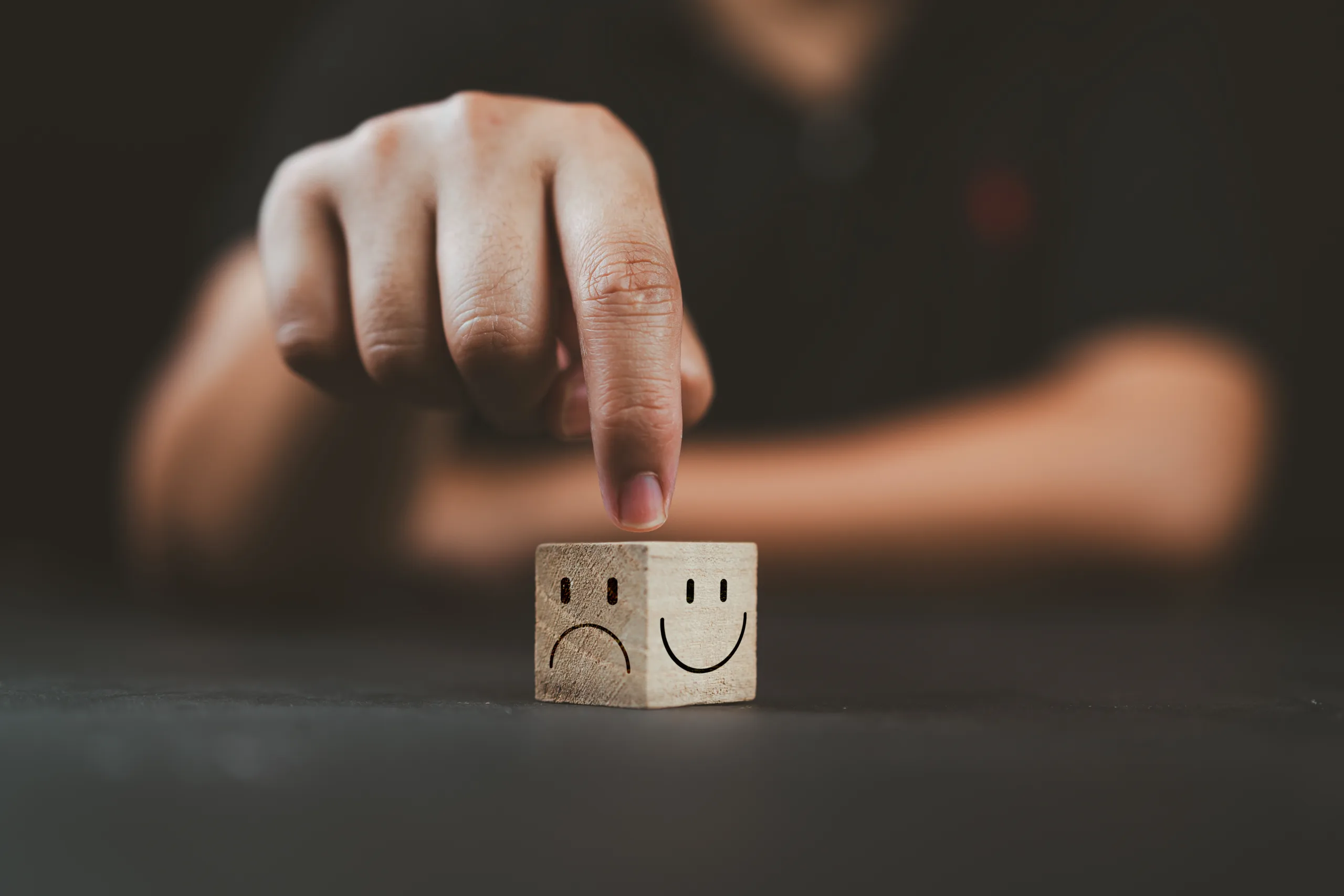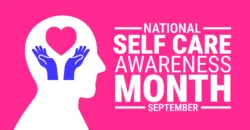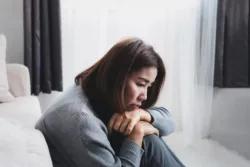What is Major Depressive Disorder?

Major depressive disorder (MDD), also known as clinical depression, is characterized by a persistent and severe low mood. Usually, this mood includes feelings of profound sadness, despair, anger, hopelessness, and loss of interest or pleasure.
MDD is the most commonly diagnosed form of depression, while depression is the most common mental health disorder worldwide. Fortunately, clinical depression is well-researched and can easily be treated. Learn more about the signs and symptoms of depression, as well as treatment options.
Depression vs. Sadness
Sadness and depression are similar. After all, someone can feel sad if they are depressed. However, the key difference is that sadness is temporary. It is usually associated with a triggering experience, like the loss of a loved one.
Depression, on the other hand, is a persistent low mood. It usually lasts more than two weeks, and it may not always be linked to an event. In other words, someone may feel depressed without being able to explain why they feel that way.
Clinical Symptoms of Depression
According to the Diagnostic and Statistical Manual of Mental Disorders (DSM-5), these are the diagnostic criteria for depression.
- Depressed mood most of the day, nearly every day
- Markedly diminished interest or pleasure in all, or nearly all activities most of the day, nearly every day
- Significant weight loss or weight gain, or changes in appetite nearly every day
- A slowing down of thought and reduction of physical movement (observable by others, not merely subjective feelings of restlessness or being slowed down)
- Fatigue or loss of energy nearly every day
- Feelings of worthlessness or excessive or inappropriate guilt nearly every day
- Diminished ability to think, concentrate, or be decisive, nearly every day
- Recurrent thoughts of death, recurrent suicidal ideation without a specific plan, or a suicide attempt or a specific plan for committing suicide
In order to be diagnosed, a person must experience at least five of the symptoms mentioned above for at least two weeks. In addition, at least one of those symptoms should be depressed mood or loss of interest or pleasure.
Treatment Options for Depression
If you’ve experienced any of these symptoms for more than two weeks, it’s important to seek professional help right away. Untreated depression can increase the risk of a relapse. Those with depression are also at a greater risk to attempt suicide.
There are many evidence-based treatment options that can help people with clinical depression. Typically, a combination of medication and talk therapy is effective.
Medications
Medications, usually referred to as antidepressants, are common for treating symptoms of depression. While it’s unclear what causes depression, we do know that there are regions of the brain that affect mood. Antidepressants work to balance neurotransmitters (dopamine, serotonin) in the brain that impact mood.
These are some common types of antidepressants. All of these work in different ways and impact various neurotransmitters.
- Selective serotonin reuptake inhibitors (SSRIs)
- Serotonin and norepinephrine reuptake inhibitors (SNRIs)
- Norepinephrine and dopamine reuptake inhibitors (NDRIs)
- Tricyclic antidepressants
- Monoamine oxidase inhibitors (MAOIs)
Your doctor will consider symptoms, side effects, other health conditions, and more to determine which medication works best for you.
Psychotherapy
For many people with depression, therapy can be very helpful, especially when combined with medication. Cognitive behavioral therapy (CBT), interpersonal therapy, and psychodynamic therapy are some of the most effective therapies for treating depression.
- Cognitive-behavioral therapy: Helps change thought processes that can reinforce depressive feelings.
- Interpersonal therapy: Works to improve interpersonal skills and problems in relationships that can impact depression.
- Psychodynamic therapy: Connects past experiences or unresolved conflicts to depression.
Therapy can occur in inpatient or outpatient settings. Inpatient treatment is ideal for people with severe or newly diagnosed clinical depression. Many people with MDD may choose to engage in ongoing therapy in an outpatient setting if their symptoms are under control.
Learn more about psychotherapy and other clinical treatment options for depression.
Natural Remedies
In addition to therapy and prescription drugs, there are other ways to treat depression. Often changes in lifestyle, like diet and exercise can help. It can also be beneficial to set goals or maintain responsibilities. Even small goals can make you feel accomplished. Try establishing a nighttime routine for consistent sleep. Too much sleep or not enough sleep can have a negative effect on depression.
Natural remedies alone are likely not effective for someone who has severe depression or hasn’t been treated. Talk about coping mechanisms like these with your doctor in addition to clinical interventions.
If you or someone you love is experiencing depression symptoms, it’s important to get professional help right away. Once you have a clinical diagnosis, you and your clinician can establish a treatment plan that works best for you.
Pyramid Healthcare offers outpatient mental health treatment for disorders like depression and anxiety. We also have dual diagnosis treatment for individuals who have depression and a substance use disorder.
For more information on depression treatment at Pyramid, call 888-694-9996.
Major depressive disorder (MDD), also known as clinical depression, is characterized by a persistent and severe low mood. Usually, this mood includes feelings of profound sadness, despair, anger, hopelessness, and loss of interest or pleasure.
MDD is the most commonly diagnosed form of depression, while depression is the most common mental health disorder worldwide. Fortunately, clinical depression is well-researched and can easily be treated. Learn more about the signs and symptoms of depression, as well as treatment options.
Depression vs. Sadness
Sadness and depression are similar. After all, someone can feel sad if they are depressed. However, the key difference is that sadness is temporary. It is usually associated with a triggering experience, like the loss of a loved one.
Depression, on the other hand, is a persistent low mood. It usually lasts more than two weeks, and it may not always be linked to an event. In other words, someone may feel depressed without being able to explain why they feel that way.
Clinical Symptoms of Depression
According to the Diagnostic and Statistical Manual of Mental Disorders (DSM-5), these are the diagnostic criteria for depression.
- Depressed mood most of the day, nearly every day
- Markedly diminished interest or pleasure in all, or nearly all activities most of the day, nearly every day
- Significant weight loss or weight gain, or changes in appetite nearly every day
- A slowing down of thought and reduction of physical movement (observable by others, not merely subjective feelings of restlessness or being slowed down)
- Fatigue or loss of energy nearly every day
- Feelings of worthlessness or excessive or inappropriate guilt nearly every day
- Diminished ability to think, concentrate, or be decisive, nearly every day
- Recurrent thoughts of death, recurrent suicidal ideation without a specific plan, or a suicide attempt or a specific plan for committing suicide
In order to be diagnosed, a person must experience at least five of the symptoms mentioned above for at least two weeks. In addition, at least one of those symptoms should be depressed mood or loss of interest or pleasure.
Treatment Options for Depression
If you’ve experienced any of these symptoms for more than two weeks, it’s important to seek professional help right away. Untreated depression can increase the risk of a relapse. Those with depression are also at a greater risk to attempt suicide.
There are many evidence-based treatment options that can help people with clinical depression. Typically, a combination of medication and talk therapy is effective.
Medications
Medications, usually referred to as antidepressants, are common for treating symptoms of depression. While it’s unclear what causes depression, we do know that there are regions of the brain that affect mood. Antidepressants work to balance neurotransmitters (dopamine, serotonin) in the brain that impact mood.
These are some common types of antidepressants. All of these work in different ways and impact various neurotransmitters.
- Selective serotonin reuptake inhibitors (SSRIs)
- Serotonin and norepinephrine reuptake inhibitors (SNRIs)
- Norepinephrine and dopamine reuptake inhibitors (NDRIs)
- Tricyclic antidepressants
- Monoamine oxidase inhibitors (MAOIs)
Your doctor will consider symptoms, side effects, other health conditions, and more to determine which medication works best for you.
Psychotherapy
For many people with depression, therapy can be very helpful, especially when combined with medication. Cognitive behavioral therapy (CBT), interpersonal therapy, and psychodynamic therapy are some of the most effective therapies for treating depression.
- Cognitive-behavioral therapy: Helps change thought processes that can reinforce depressive feelings.
- Interpersonal therapy: Works to improve interpersonal skills and problems in relationships that can impact depression.
- Psychodynamic therapy: Connects past experiences or unresolved conflicts to depression.
Therapy can occur in inpatient or outpatient settings. Inpatient treatment is ideal for people with severe or newly diagnosed clinical depression. Many people with MDD may choose to engage in ongoing therapy in an outpatient setting if their symptoms are under control.
Learn more about psychotherapy and other clinical treatment options for depression.
Natural Remedies
In addition to therapy and prescription drugs, there are other ways to treat depression. Often changes in lifestyle, like diet and exercise can help. It can also be beneficial to set goals or maintain responsibilities. Even small goals can make you feel accomplished. Try establishing a nighttime routine for consistent sleep. Too much sleep or not enough sleep can have a negative effect on depression.
Natural remedies alone are likely not effective for someone who has severe depression or hasn’t been treated. Talk about coping mechanisms like these with your doctor in addition to clinical interventions.
If you or someone you love is experiencing depression symptoms, it’s important to get professional help right away. Once you have a clinical diagnosis, you and your clinician can establish a treatment plan that works best for you.
Pyramid Healthcare offers outpatient mental health treatment for disorders like depression and anxiety. We also have dual diagnosis treatment for individuals who have depression and a substance use disorder.
For more information on depression treatment at Pyramid, call 888-694-9996.





